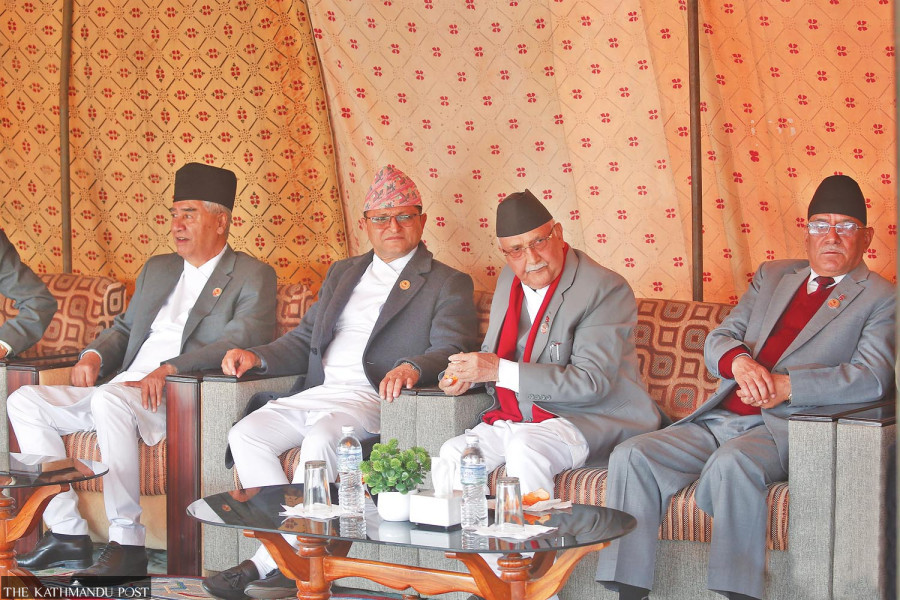Editorial
Oli-Dahal-Deuba show
As Oli prepares to replace Dahal as PM, it is worth pondering when this sordid cycle will end.
Prime Minister Pushpa Kamal Dahal is all set to go today. After being taken for a ride turn-by-turn by a distant third CPN (Maoist Centre) led by Dahal, the two big parties in Parliament—the Nepali Congress and the CPN-UML—have joined hands to form a coalition government. And with this, Dahal, who remained at or around the power centre for almost a decade even with his party performing poorly in polls, is pushed to the periphery—at least for a while. The overzealous commentaries about Dahal being thrown off the grid of power may, however, be premature. As per the current constitutional provisions, coalition culture is here to stay. And considering how adamant the political parties are in sticking to their morally corrupt politics, no one can tell if the impending Congress-UML coalition stays for the next three months or three years.
As Dahal goes today, there does not seem to be much point assessing how well his coalition with the UML fared in just four months of its existence. It takes decades, even centuries, to build a nation. The five-year term of Parliament is the minimum required for a set of leaders to make some impactful decisions for the country. There certainly are provisions for changes in the government, even in the midst of the parliamentary term, but these should be exceptional cases. What we have got, however, is a perpetuity of the coalition culture. It is this perpetuity that has halted the nation-building process for decades now. With the same set of three old men playing the hot potato game around power, nation-building has become a staccato performance at best. Just as one performer comes to the stage and starts his performance, he is pushed to the sidelines in the middle of the act.
Pushpa Kamal Dahal will perform the last scene of the four-month act that was his coalition. He will come on stage, search for UML chairperson KP Sharma Oli among the audience, and call him a betrayer. He will then look for the Nepali Congress President Sher Bahadur Deuba and blame him for being power-hungry. Oli and Deuba will then take the stage by turns and blame Dahal for trying to take them for fools. Such acts have been repeatedly performed, with the same set of plots, performances and actors. There is certainly a new actor on the block, a television presenter who thought he had had enough of shouting out of the small screen. He stepped out of the screen into the field and competed with the old guards whose noses he wanted to break—as his infamous saying went.
The moment Rabi Lamichhane came to the spotlight after an impressive electoral showing, the masks he had worn all along started falling off. After a while, he became the fourth old man in the club of politicians who see fault in everyone else besides themselves. Only that Lamichhane was louder, more contemptuous of the media, and as directionless as the other three when it came to envisioning a future for the nation. As Dahal is forced to step down and Oli is about to take the helm, it is worth pondering if this sordid cycle of drama will end anytime soon.




 10.12°C Kathmandu
10.12°C Kathmandu













